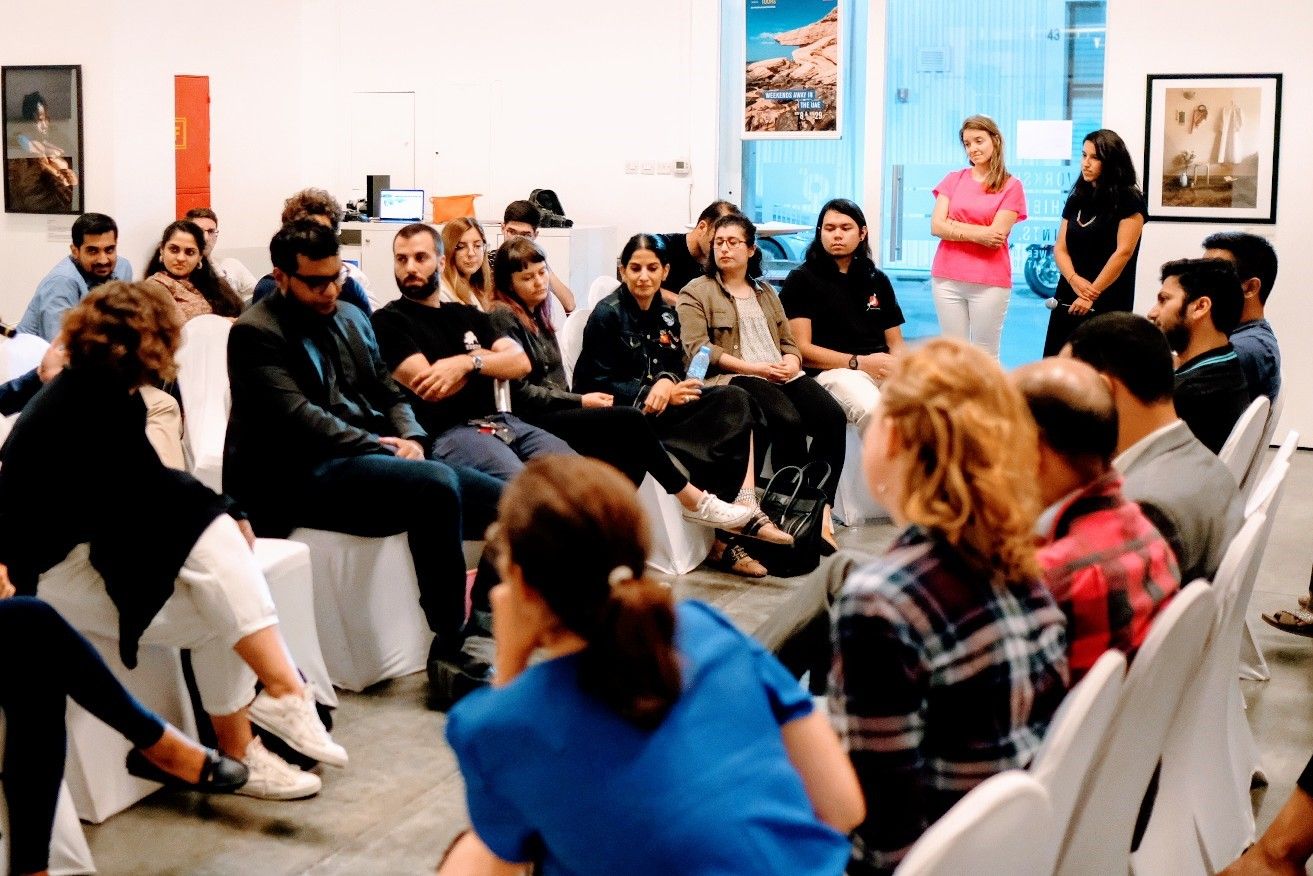Podcasts: digitising an oral tradition

The tradition of telling stories is not unique to the Middle East, but this part of the world has for millennia enjoyed tales of love, adventure and divine power expressed in oral lore and passed down generation to generation. This culture of oral tradition is evident today in the popularity of radio, where the medium reaches more than three quarters of the populations in Saudi Arabia, the UAE and Lebanon.
In following with this tradition, podcasts and audiobooks are also picking up pace in the Middle East and North Africa (Mena). While figures are hard to come by, research conducted by UAE-based podcast producer Kerning Cultures and in5, Dubai’s media incubator, suggest there are up to 300 active podcast shows in Arabic and English across the Middle East.
“Radio currently reaches more households in the Middle East and North Africa than television,” says Hebah Fisher, co-founder and chief executive officer (CEO) at Kerning Cultures. “Digital listening behaviour is already here, Saudis today spend more time listening to digital audio than Americans.”
While there are up to half a million active podcasts in markets like the West according to Fisher, the opportunity in Mena is “huge…Podcasts are media’s next growth market”, she says.
There are already several podcast producers in the region, including Jordan-based Sowt and Saudi Arabia’s Ilm FM and as the international audio streaming services have shown an interest in Mena, access to podcasts should become easier.
The number one podcast in the Middle East, according to iTunes rankings and listened to in 129 countries is When Women Win, a series of podcasts focusing on successful women, led by UAE-based host Rana Nawas.
"I started When Women Win to give women everywhere access to awesome boss ladies from all walks of life who inspire and educate, sharing eye-opening stories as well as practical tips and tools that helped them succeed," says Nawas. “To make [podcasts] worth your while, it’s got to be about something you care about deeply and be of interest to a group you can define clearly.”
Audio on the Move
With some of the world’s longest commute times, (96 minutes in the UAE and 84 minutes in Egypt according to Dalia Research), podcasts and audiobooks are becoming a popular alternative to radio and music for many drivers and commuters.
For Stefano Fallah, CEO and founder of Lebanon-based Fallound, podcasts are the ideal audio companion for commutes.
“Fallound strives to make every commute an educational experience. Whether you’re driving in your car or simply walking to work, Fallound fills in every free time-slots with quality content,” says Fallaha.
The company’s algorithm identifies the length of time users will be driving and selects a podcast with the same duration. The company recently raised $125,000 and is looking to work with car manufacturers to embed its technology.
These long commute times have also benefited audiobooks. UAE-based Booklava, an online audio books platform, has started to scale after going through incubation at in5 in Dubai. Its CEO and founder Tarik El Bolbol, says the surface has barely been scratched for podcasts and audiobooks in Arabic and the region’s other languages.
“Spoken audio can be a solution for a region with difficulty in making a print or physical version of a book available in every library and every country,” he says.
Booklava recently signed partnerships with US-based HarperCollins to distribute its English books and with Abu Dhabi-based startup Haykal Media to distribute audio versions of its Arabic magazines such as Harvard Business Review Arabia and MIT Technology Review Arabia.
Monetising
In a report from US-based Interactive Advertising Bureau and PWC, advertising revenues from podcasts generated $314 million in 2017 in the US, an increase of 86 per cent compared to 2016. There are no figures for the Middle East, where producers are diversifying their reach beyond advertising to generate revenue.
The Dukkan Show, a UAE-based culture podcast founded by Omar Tom, a former radio host, makes use of live events and partnerships to further its audience. With 128 episodes, the show now ranks top in the region for society and culture according to iTunes.
"We're not only doing podcasts anymore. We’re creating multi-platform content across the board” says Tom. “We don't just have an online relationship with listeners, we definitely aim to have on-the-ground activations.”
Dukkan was the first podcast in the world to host a #TodayAtApple talk in an Apple Store, and Tom is now partnering with companies to help produce podcasts for them and other content for platforms like Snapchat and Instagram.
In the case of Kerning Cultures, partnerships with the international media startup ecosystem have been fruitful. Following its graduation from media startup accelerator Matter, in San Francisco, Kerning Cultures found a partner to help monetise its audience.“After we graduated from Matter, we connected with RadioPublic, a media partner of Matter (and started getting paid per listen on their app). US-based players like RadioPublic aren't that well known in the Middle East, and we try to promote them as much as we can so everyone benefits,” says Fisher.
Kerning Cultures also tries to engage with listeners by hosting live ‘listening parties’.
“We see podcast listening parties as a great way to translate what is often a solitary listening experience into a communal one,” says Fisher. “Also, because podcasts are still quite new to the region, it's an effective way to introduce podcasts to a new listener – experientially.”
Whether listeners will tune in for the long-haul remains to be seen. The podcast market is still in its infancy in the region, but with high mobile penetration rates, long commute times and a young population, there is certainly room for growth.


